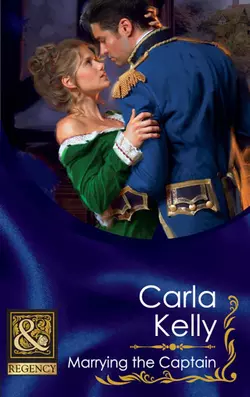Marrying the Captain

Carla Kelly
Тип: электронная книга
Жанр: Современная зарубежная литература
Язык: на английском языке
Стоимость: 458.46 ₽
Статус: В продаже
Издательство: HarperCollins
Дата публикации: 16.04.2024
Отзывы: Пока нет Добавить отзыв
О книге: THE CAPTAIN AND THE COMMONER Ever since her father tried to sell her as a mistress to the highest bidder, Eleanor Massie has chosen to live in poverty. Her world changes overnight when Captain Oliver Worthy shows up at her struggling inn. Despite herself, Eleanor is drawn to her handsome guest…Oliver only planned to stay in Plymouth long enough to report back to Eleanor’s father on his estranged daughter. But Oliver soon senses that he’s been sent under false pretences, and he will do anything to keep this courageous, beautiful woman safe – even marry her!